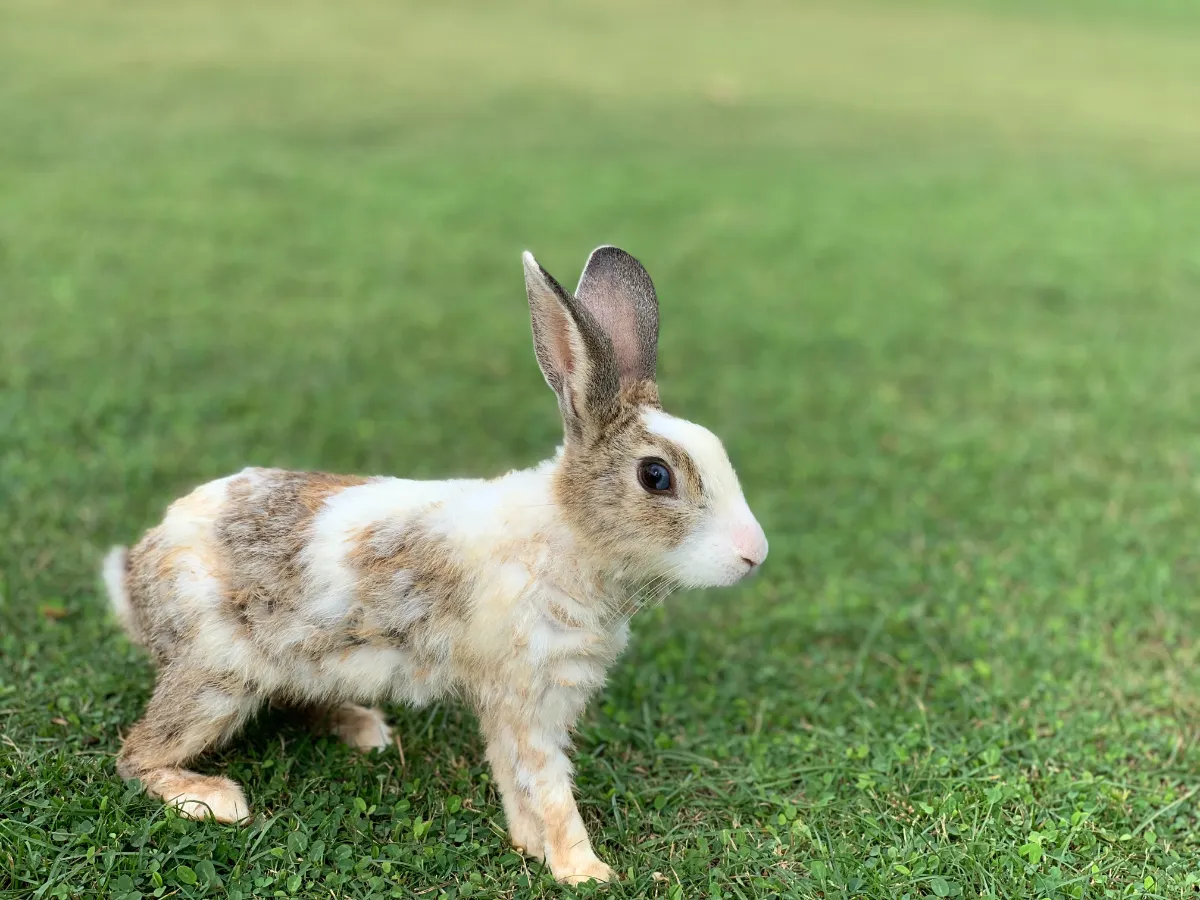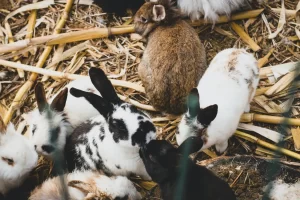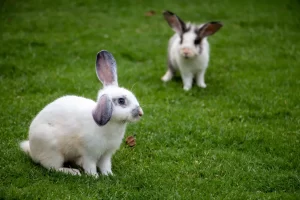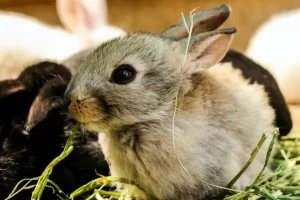Have you ever experienced the sudden loss of a beloved rabbit? It can be a devastating and heartbreaking experience.
Understanding what causes a rabbit to die suddenly is crucial for providing the best care and ensuring their well-being.
From health conditions and diet to environmental factors and infectious diseases, there are various factors that can contribute to a rabbit’s untimely demise.
By exploring these causes, we can learn how to protect and support our furry friends to prevent such tragic occurrences.
In This Article
- 1 Key Takeaways
- 2 Health Conditions
- 3 Diet and Nutrition
- 4 Environmental Factors
- 5 Infectious Diseases
- 6 Stress and Anxiety
- 7 Accidental Injuries
- 8 Frequently Asked Questions
- 8.1 Can a Rabbit Die Suddenly From Old Age?
- 8.2 Can a Rabbit Die Suddenly From Genetic Conditions?
- 8.3 Are There Any Poisonous Plants That Can Cause a Rabbit to Die Suddenly?
- 8.4 Can Rabbits Die Suddenly Due to Exposure to Extreme Temperatures?
- 8.5 Can Rabbits Die Suddenly From Complications During Pregnancy or Giving Birth?
- 9 Conclusion
Key Takeaways
- Gastrointestinal stasis, dental problems, and age-related issues can lead to sudden death in rabbits.
- Nutritional deficiencies and obesity can also contribute to the risk of sudden death in rabbits.
- Environmental factors such as climate change and pollution can impact the health and survival of rabbit populations.
- Understanding and preventing infectious diseases, as well as managing stress and anxiety, are important for the overall well-being and longevity of rabbits.
Health Conditions
You should be aware of the various health conditions that can affect rabbits, including common issues like gastrointestinal stasis and dental problems. Rabbits can have a genetic predisposition to certain health conditions, which means they’re more likely to develop them due to their genetic makeup.
Age-related issues are also common in rabbits, as they age, their bodies become more susceptible to diseases and illnesses. Gastrointestinal stasis is a condition in which the rabbit’s digestive system slows down or stops completely, leading to a buildup of gas and potentially fatal consequences.
Dental problems are also prevalent in rabbits, as their teeth continue to grow throughout their lives, they can develop overgrown teeth or malocclusion, which can cause pain, difficulty eating, and even death if left untreated.
Regular veterinary check-ups and a proper diet can help prevent and manage these health conditions in rabbits.
Diet and Nutrition
Eating a balanced diet is crucial for maintaining good health and nutrition. Nutritional deficiencies can arise when the body doesn’t receive adequate amounts of essential nutrients. These deficiencies can lead to a wide range of health problems, such as weakened immune system, impaired cognitive function, and poor growth and development.
On the other hand, overfeeding and obesity can also have detrimental effects on health. Overconsumption of calories, especially from unhealthy sources, can lead to weight gain and increase the risk of chronic diseases like diabetes, heart disease, and certain types of cancer.
It’s important to strike a balance between providing the body with enough nutrients to function properly and avoiding excessive calorie intake. By following a balanced diet, you can ensure that you’re nourishing your body with the right amount of nutrients while avoiding the negative consequences of overfeeding and obesity.
Environmental Factors
When it comes to the health of rabbits, it’s important to consider how environmental factors can impact their well-being. Climate change, characterized by rising temperatures and extreme weather events, has significant implications for rabbit populations. High temperatures can cause heat stress in rabbits, leading to dehydration, reduced appetite, and even death. Changes in habitat quality due to climate change can affect the availability of food and shelter for rabbits, further compromising their health.
Additionally, pollution is another environmental factor that can negatively affect rabbits. Exposure to pollutants, such as pesticides and industrial chemicals, can lead to respiratory problems, neurological disorders, and reproductive issues.
It’s crucial to address these environmental factors to ensure the well-being and survival of rabbit populations.
Infectious Diseases
Make sure to wash your hands frequently and avoid close contact with sick individuals, as infectious diseases can easily spread. Understanding the transmission methods and implementing proper prevention strategies is crucial in minimizing the risk of infection.
Here are four key points to consider:
- Direct Contact: Many infectious diseases are transmitted through direct contact with an infected person or their bodily fluids. This includes touching, kissing, or sexual contact.
- Airborne Transmission: Some diseases can spread through tiny droplets in the air when an infected person coughs or sneezes. These droplets can be inhaled by others, leading to infection.
- Water and Foodborne Transmission: Certain pathogens can contaminate water or food, causing illness when consumed. It’s essential to ensure proper hygiene and food safety practices to prevent such infections.
- Vector-borne Transmission: Some infectious diseases are transmitted through vectors such as mosquitoes, ticks, or fleas. Taking measures to avoid exposure to these vectors, like using insect repellents and wearing protective clothing, can reduce the risk of infection.
By understanding the transmission methods and implementing effective prevention strategies such as practicing good hygiene, maintaining a clean environment, and getting vaccinated when available, we can protect ourselves and others from infectious diseases.
Stay informed, follow guidelines from health authorities, and prioritize the health and well-being of those around you.
Stress and Anxiety
Take deep breaths and try to relax, but stress and anxiety can be overwhelming at times. Mental health is crucial for overall well-being, and understanding how stress and anxiety affect us is essential.
When we experience stress and anxiety, our body releases stress hormones that can have both short-term and long-term effects on our mental and physical health. These hormones can lead to changes in our behavior, such as irritability, difficulty sleeping, and changes in appetite. Additionally, prolonged stress and anxiety can contribute to the development of mental health disorders, including depression and anxiety disorders.
It’s important to recognize and address these symptoms to prevent further negative impacts on our mental health. Seeking support from loved ones, practicing relaxation techniques, and engaging in activities that promote self-care can help manage and reduce stress and anxiety levels.
Accidental Injuries
You should be careful while walking on slippery surfaces, as accidental injuries can happen easily. Trauma prevention is crucial to ensure the well-being of rabbits. Here are some evidence-based tips on first aid for rabbits to help prevent and manage accidental injuries:
- Provide a safe environment: Ensure the rabbit’s living space is free from hazards such as sharp objects, toxic plants, and loose wires.
- Handle with care: Always support the rabbit’s hindquarters to prevent spinal injuries and avoid sudden movements that may startle or harm them.
- Supervise playtime: When allowing your rabbit to roam outside their enclosure, supervise them to prevent falls, attacks from other animals, or ingestions of harmful substances.
- Be prepared: Keep a rabbit first aid kit handy, including items like sterile gauze, hydrogen peroxide for cleaning wounds, and an emergency contact number for a rabbit-savvy veterinarian.
Frequently Asked Questions
Can a Rabbit Die Suddenly From Old Age?
Yes, a rabbit can die suddenly from old age. As rabbits age, their lifespan decreases, and they may exhibit signs of old age such as a decrease in activity, appetite, and mobility.
Can a Rabbit Die Suddenly From Genetic Conditions?
Genetic mutations and hereditary diseases can cause a rabbit to die suddenly. These conditions can affect various systems in the body, leading to organ failure or other life-threatening complications. Regular veterinary check-ups are important to detect and manage these issues.
Are There Any Poisonous Plants That Can Cause a Rabbit to Die Suddenly?
Toxic plants and common household hazards can be fatal to rabbits. Prevent them by keeping plants out of reach, researching safe vegetation, and securing household items that may harm your furry friend.
Can Rabbits Die Suddenly Due to Exposure to Extreme Temperatures?
Yes, rabbits can die suddenly due to exposure to extreme temperatures. Heatstroke risks can be a concern in hot weather, while hypothermia dangers arise during cold spells. It’s important to provide proper shelter and temperature regulation for your rabbit to prevent these risks.
Can Rabbits Die Suddenly From Complications During Pregnancy or Giving Birth?
Complications during pregnancy or giving birth in rabbits can cause sudden death. Stress and anxiety can also contribute to this outcome. It is important to provide proper care and support to pregnant rabbits to minimize such risks.
Conclusion
So, to conclude, there are various factors that can cause a rabbit to die suddenly.
Health conditions, improper diet and nutrition, environmental factors, infectious diseases, stress and anxiety, as well as accidental injuries, can all contribute to the untimely demise of a rabbit.
It’s crucial for rabbit owners to provide proper care and attention to their furry friends to ensure their well-being and longevity.
Remember, prevention is key, as an old saying goes, ‘An ounce of prevention is worth a pound of cure.’





